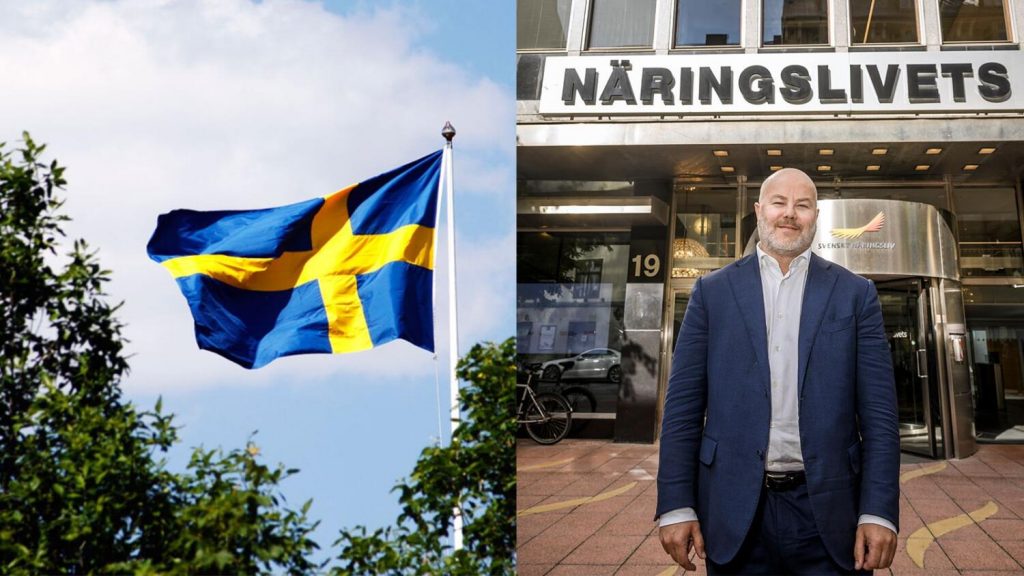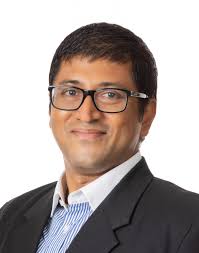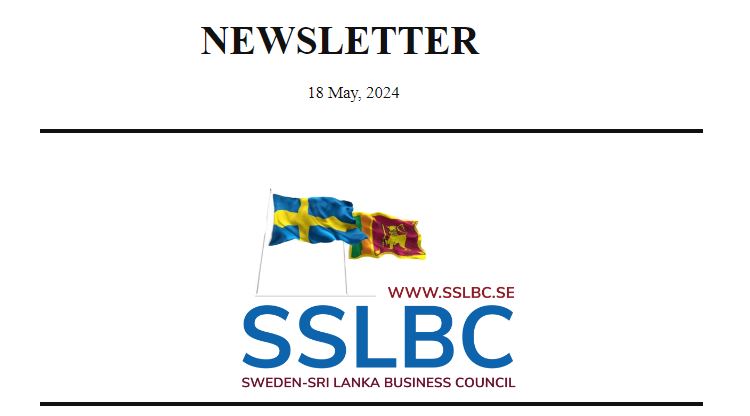Our German sister organisation produces a very interesting newsletter
The Chief Economist: The economy is about to turn around
Although times are still tough, businesses are more optimistic about the future, a new survey shows. ”It could be an indication that things will soon turn,” says Sven-Olov Daunfeldt, chief economist at Swedish Enterprise.

In the current recession, many companies are fighting for their survival and this can be seen, among other things, in an increased number of bankruptcies, increased notices and rising unemployment. But in Svenskt Näringsliv’s survey, the Business Panel, an increased faith in the future is noticeable.
- When we ask the companies about their expectations about the future, we see that there has been a turnaround and they are much more optimistic about the future now than they have been before, says Sven-Olov Daunfeldt, Chief Economist at Svenskt Näringsliv.
According to the business panel, among other things, the risk of notice has decreased. By the end of 2023, 28 percent of companies stated that there was a risk that they would need to notify staff within the next six months. Now it has dropped to 20 percent.
In addition, the same positive trend can be seen when it comes to labor hoarding, that is, when companies have more staff than they actually need in the short term. 30 percent of companies stated at the end of last year that they had more staff than they needed, now that figure is down to 23 percent.
- If you ask about the companies’ expectations for the future, they are basically at a normal level now. It could be an indication that things will turn around soon.
There are also positive signals on the labor market. For example, when it comes to expectations about the number of employees a year from now, the figure lands at 12 percent when you look at the net total, i.e. the percentage of companies that believe in an increase minus the percentage that believe in a decrease. When the companies assess the need to hire compared to 12 months ago, the figure lands at minus 6 percent.
But at the same time, times are still tough. Apart from the pandemic, investments have not been this low since the financial crisis in 2009, according to measurements from Swedish Enterprise. The net number in terms of how companies’ investments have developed over the past year is negative (minus 5). But expectations around investments are expected to increase in a year’s time, the net figure of 7 percent shows. Sven-Olov Daunfeldt believes that the fight against inflation is over and that companies’ positive faith in the future depends on the Riksbank’s interest rate cut.
- We saw quite quickly that the situation became more optimistic after the Riksbank announced at the beginning of spring that they intended to start with interest rate cuts. The companies see that there may be further interest rate cuts and this instills hope that the economy will turn around.
But even if the companies see a light at the end of the tunnel, it is still uncertain when the economy will turn around, he believes.
- There is a lot of psychology in economics and the companies believe that things will get better and they start to invest more and the economy will also turn around. Our surveys show that companies have become more optimistic and this is usually a sign that the economy is about to turn around.
Although the pandemic, the war in Ukraine and a recession have hit many companies hard, it has not affected their faith in the future negatively, he believes. - Many companies have had an extremely tough time, but I believe that it has not negatively affected the companies’ view of the future. Entrepreneurs are generally positive people who prepare themselves for crises and they try to see opportunities in everything.
However, policy has changed as a result of the crises and there is now a greater focus on temporary measures, he believes.
- We have seen a lot of crisis politics and we have to get rid of that. It is not good, but we have to let the market work by itself. Firms that are not productive must be driven out of the market and replaced by other firms that are more productive and more competitive.
- That’s how we get the economy to work well and that’s how we get growth and productivity.
The absolutely most important thing going forward is to use Sweden’s state finances to invest in, among other things, infrastructure and to create a better functioning labor market so that companies can hire the skills they demand, he believes.
- Now politics needs to create the conditions for us to get a stronger growth force in the Swedish economy so that we can get higher growth and productivity in the Swedish business life.
- The skills crisis is still a huge problem, even though we are now in a recession. Now we have to invest in making the companies grow.
Newsletter 18th May
Three Quick Ones – Jehan Perinpanayagam
Jehan Perinpanayagam plays a central role in Sri Lankan business and in strengthening trade relations with the Nordic countries. He is the President of the Sri Lanka Nordic Business Council and the chairman of SLASSCOM (Sri Lanka Association for Software and Services Companies) which brings together a growing number of members. He has been with John Keells Group, Sri Lanka’s largest business conglomerate, for nearly 30 years. Since 2005 he is the CEO of its subsidiary Infomate.

Located just south of a market giant, how does Sri Lanka compete?
We don’t compete, we co-operate. We talk about India+1. The respective strengths of our offerings are different. India is ideally suited for very large projects, whereas for more niche projects Sri Lanka is better suited. Diversifying risk across multiple countries is becoming increasingly important in a geopolitically complex and turbulent world. Sri Lanka’s IT/BPM industry offers some of the best and most cost-effective talent. For example, Swedish software company IFS has 2,000 employees in Sri Lanka. There are several other companies in the IT / BPM space from Sweden, Norway and across Europe that have established delivery centers or partnerships in Sri Lanka. Many emphasize quality and innovation as key factors.
What are the main lessons learnt from the pandemic?
The pandemic was a challenge for all of us. In Sri Lanka, we have emerged with some valuable lessons which will strengthen us. Digitalization took big steps forward, both during the pandemic and afterwards. At the same time, risk thinking became more sophisticated with an increased focus on security. We also learnt to take advantage of the fact that we work in a different time zone from many of our clients and partners. Working from any geographical location became a matter of course and a new normal in the post pandemic world. People are more comfortable with working across borders and accessing talent globally.
How can trade relations between Sri Lanka and Sweden develop?
Sweden and the rest of the Nordic region, along with the US, UK, Australia and the Middle East, are key markets for Sri Lanka’s IT / BPM sector. We recognize that we have a job to do to raise awareness of what Sri Lanka can offer. Therefore, co-operation with the SSLBC is key, as well as with chambers of commerce at national and regional level. We would welcome online and in-person meetings including inward missions and matchmaking. Industry and financial analysts have a growing role in this work through their in-depth analyses that contribute to sophisticated knowledge dissemination. We welcome visits from analysts and journalists and those keen to understand firsthand Sri Lanka’s fast-growing IT/BPM sector, world class talent and partnership opportunities.
Följ utvecklingen i en snabbt växande region
Prenumerera på vårt uppskattade nyhetsbrev – https://gansub.com/s/Ge40SPIkFLQ7g4JH7jVJ/

The king has already eaten their sea salad – now Nordic Seafarm is increasing by 76 percent
The researchers believe in filling stomachs with crops from the sea. And seaweed and sea lettuce will soon be in a grocery bag on its way to your home, if the foodtech company Nordic Seafarm gets to decide.
Breakit has read the latest financial statement. That’s how it goes for the company that is backed by the Stena owner.
Nordic Seafarm was founded by six researchers back in 2016 to investigate the possibilities of cultivating climate-smart alternatives in the oceans. It’s about seaweed and the green plant called sea lettuce.
Last year we wrote that the company made common cause with the then newly formed investment company Ocean Collective. The idea with the company, which is half-owned by the two companies, is to develop several new food concepts where marine ingredients should be prominent.
”Seaweed is a completely renewable crop that can reduce the demand for traditional agricultural products while helping to save the oceans by absorbing carbon dioxide and strengthening biodiversity,” said Simon Johansson, CEO and founder of Nordic Seafarm, at the time.
Now the fresh financial statements have arrived from Nordic Seafarm. And it is moving forward. Turnover increased by 76 percent and landed at SEK 2.2 million.
The company has harvested around 50 tons of seaweed and sea lettuce on its eight-hectare rigs. These have been sold to 108 direct paying customers, of which 94 were in the food segment.
King Carl XVI Gustaf and Queen Silvia have already tasted. It is the case that last year Nordic Seafarm’s products were delivered to the Nobel dinner for the second year in a row.
It’s a big device to farm at sea and it shows. Operating profit landed at minus 12.4 million kroner, an increase in the loss from minus 10.2 million in 2022.
Nordic Seafarm has taken in around SEK 30 million in capital. The largest owner is Dan Sten Olsson, principal owner and CEO of the Stena Group, and his wife Jane Olsson Thorburn. They own 10.35 percent each, according to the data service Eivora.
Nyhetsbrev 5 maj 2024
Newsletter ECCSL
Latest newsletter from our sisterorganization ECCSL


